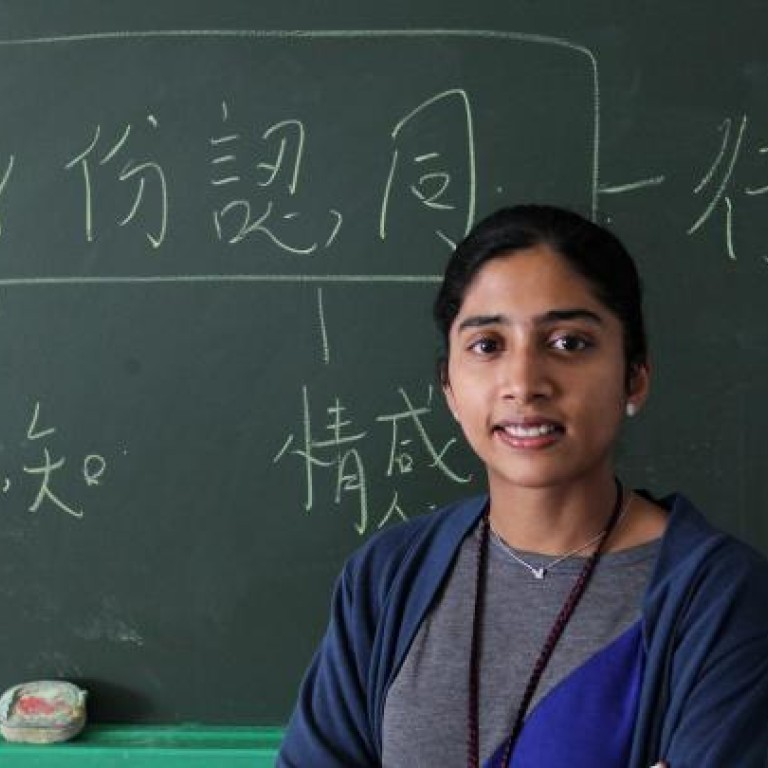
Hong Kong-born adoptee wins fight for Chinese nationality
Maggie Cheung was born and raised in Hong Kong but until she applied for a passport she had no idea she wasn't actually Chinese
Maggie Cheung was born in Hong Kong, her parents are Hongkongers, she speaks perfect Cantonese, holds a Hong Kong identity card and a Chinese home return permit, but it took media pressure for the government to grant her Chinese nationality.
After filing her application a year ago, the Immigration Department finally approved her application to become a Chinese national on Friday, following questions raised by the over the case.
Cheung was born to a Pakistani woman in Hong Kong 24 years ago, but her mother abandoned her. She was fostered by a Chinese family when she was three months old and was legally adopted by the same family when she was three.
The young woman studied at a local school and then progressed to Chinese University where she studied for a bachelor's degree in physical education and sports science.
Two years ago she had a chance to take part in an exchange programme in Britain, so she went to apply for a passport.
She was shocked to be told she was not a naturalised Chinese and was only given a document of identity for visa purposes, in which the section concerning her nationality was left blank, indicating she was stateless.
"I really struggled psychologically when I found out that while I recognise myself as a Hongkonger, the law does not," she recalled. She regards herself as a Hong Kong citizen and her identity card carries three stars - indicating her permanent residency.
After being given the document of identity she tried to apply for naturalisation but was told her chances were slim as she did not have a stable income. Cheung, who now teaches liberal studies in a secondary school in Tseung Kwan O, formally filed an application last year after she became a teacher.
On Friday that application was approved.
"I am really disappointed," she said.
"So the government actually works that way - it approves an application when [the] media file inquiries. It is not credible at all and the system is very problematic."
She has yet to receive a written notice of the approval.
According to the Convention Relating to the Status of Stateless Persons, to which Hong Kong is a signatory, contracting states "shall as far as possible facilitate the assimilation and naturalisation of stateless persons".
Law Yuk-kai, director of independent rights organisation Human Rights Monitor, said the government had an international obligation to solve Cheung's nationality issue when she was legally recognised as an adopted child - following the nationality of her adoptive parents according to international practice.
"She has a home return permit, meaning even the Chinese government recognised her as a Chinese national, or else how can she return 'home' [to the mainland]?" he said.
Foreigners or stateless persons holding Hong Kong permanent residency can only apply for the home return permit when they have been naturalised, according to the website of the China Travel Service, which issued the permits.
Barrister and former lawmaker Margaret Ng Ngoi-yee, now a member of the non-government organisation Hong Kong Unison, agreed, saying Chinese law states that adopted children should be treated the same as one's own children and should be given Chinese nationality if their parents are Chinese.
Cheung is the fourth person with an ethnic minority background reported by the as having had trouble with their naturalisation applications.
However, Ocean Park chairman Allan Zeman, district councillor Paul Zimmerman and former director general of InvestHK Michael Rowse were all successfully naturalised.
"It would not cost the director of immigration anything to write an open statement once again to reassure everybody that 'we do apply the rule consistently and actually there is no racial bias'," said Equal Opportunities Commission chairperson Lam Woon-kwong.
He added that matters concerning immigration were exempted under the racial discrimination ordinance.
Fermi Wong Wai-fun, executive director of Hong Kong Unison, which helps ethnic minorities, said she would write to Secretary for Security Lai Tung-kwok this week with about 10 similar cases and if he failed to give a positive response, she would launch a judicial review against the naturalisation system.
An Immigration Department spokesman refused to comment on individual cases.
